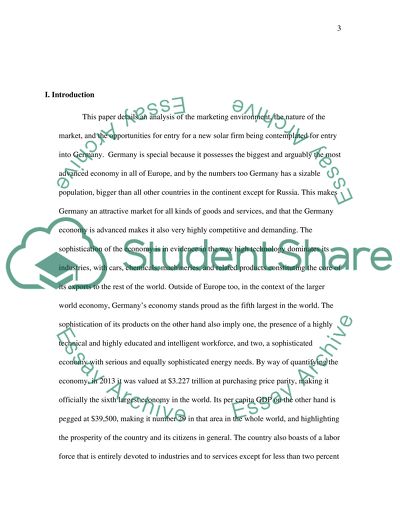Cite this document
(“Starting a new solar panel company in Germany Research Paper”, n.d.)
Starting a new solar panel company in Germany Research Paper. Retrieved from https://studentshare.org/marketing/1647709-starting-a-new-solar-panel-company-in-germany
Starting a new solar panel company in Germany Research Paper. Retrieved from https://studentshare.org/marketing/1647709-starting-a-new-solar-panel-company-in-germany
(Starting a New Solar Panel Company in Germany Research Paper)
Starting a New Solar Panel Company in Germany Research Paper. https://studentshare.org/marketing/1647709-starting-a-new-solar-panel-company-in-germany.
Starting a New Solar Panel Company in Germany Research Paper. https://studentshare.org/marketing/1647709-starting-a-new-solar-panel-company-in-germany.
“Starting a New Solar Panel Company in Germany Research Paper”, n.d. https://studentshare.org/marketing/1647709-starting-a-new-solar-panel-company-in-germany.


